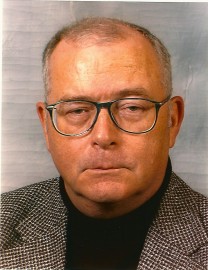Prof. Dr. em. Klaus E. Müller was born in Dortmund in 1935. His father was a graduated engineer, who took position against the Nazi regime. His mother was a pianist and concertist. Until 1943 Müller attended primary school near Iserlohn in the Sauerland region. Moreover, he attend secondary school in Arnsberg, where Greek and Latin were among his major subjects.
After World War II his family moved to Dortmund in 1949, where Müller not only finished school but also developed a growing interest in theater and dancing. For two years he had ballet lessons and worked at the local opera. Eventually he went to Munich and studied at the Bavarian State Opera for four years in order to become an opera director. Moreover, he studied German Philology, Philosophy and Theater Studies at the Technical University of Munich.
After coming into contact with Anthropology through Hermann Baumann, Müller decided to take up his studies at the Institute for Ethnology and African Studies at the Ludwig-Maximilian-University of Munich in 1959. Anthropology became his major subject, while Islamic Studies, Mongolian Studies, Turcology and New Iranian Studies were his minor subjects. Müller not only deepened his knowledge on the Middle East but also learned about mythology, the historical roots of German Anthropology and cultural relativism. Moreover, he followed his interest in material culture, Prehistory and Philosophy. He graduated in 1964.
The same year Müller took up an assistant position at the Frobenius-Institute in Frankfurt/Main. His regional focus eventually extended, as Müller not only took interest in the Middle East but also in the multi-ethnic region of Caucasus. In 1965 Müller took up an assistant position at the Department of Anthropology and African Studies in Mainz, where Eike Haberland held a professorship. Besides doing research for his habilitation thesis, Müller began lecturing (e.g., on mythology).
When Haberland took up a full professorship at the Frobenius-Institute in Frankfurt in 1968, Müller went with him. He finished his habilitation thesis in 1970 and eventually took up a professorship at the Institute for Cultural and Social Anthropology at the Johann Wolfgang Goethe-Frankfurt University in 1971.
During the next decades, Müller was not only chairman of the department but also did lectures on a wide range of topics and established new seminars for a growing number of students. Furthermore, he collaborated with scientists of other academic subjects (e.g., Geographers, Historians, Psychologists) as he not only worked at the Center for Interdisciplinary Research (Zentrum für Interdisziplinäre Forschung, ZIF) in Bielefeld but also at the Institute for Advanced Study in the Humanities (Kulturwissenschaftliches Institut, KWI) in Essen. Müller retired in 2004.
Short Portrait: Klaus E. Müller

Klaus E. Müller
 further information
further information



